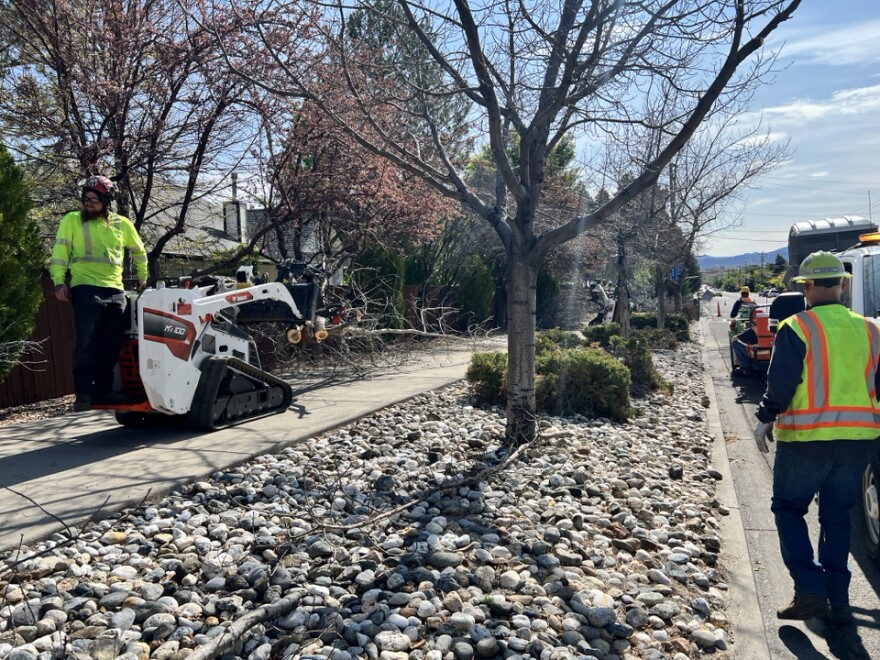The investigation was sparked by reports of tree and landscape decline throughout the city. Carson City Parks, Recreation and Open Space, in collaboration with state and local plant health experts, identified approximately 250 trees as more than 50% dead and need to be removed.
Officials named heat stress and herbicide exposure among some of the fundamental factors contributing to tree decline in the city in a press release issued last week. Incest infestation, irrigation, overplanting and competition were also identified as key contributors.
Jennifer Budge, director of Carson City Parks, Recreation and Open Space, said the light winter and recent rising temperatures contributed to the increasing tree decline. However, the main culprit was the city’s use of rock mulch.
“A major factor of the situation we have right now [is] soil temperatures,” she said.
In early June, Budge met with an urban forester who gave her the rundown. Rock mulch was placed around the base of trees, medians and right-of-ways in what seemed like a very practical application at first. Rock is very durable. It can handle the brine and salts from the Carson City roadways. There is just one problem: it heats the root systems.
“It wasn't even what I would consider very warm temperatures,” Budge said after being instructed to place her hand in the ground by the urban forester. “Yet those rocks will absorb the heat from the sun, heating our root system.”
The city is considering revising its landscaping practices, replacing the rock with organic mulch such as wood chips.
Carson City will also be coordinating with the University of Nevada Cooperative Extension horticulturist to sample soils for herbicide residue in key areas.
Herbicide, which is used to manage invasive weeds, can outcompete healthy vegetation and compromise tree health when not properly filtered. Rain and snow over the winter months will typically act as a natural filtration system, however Northern Nevada’s most recent dry spell may have left high herbicide concentration levels in the soil.
Affected areas will be properly irrigated before replanting can begin.
“I never want to have even one tree taken down,” Budge said. “Trees add so much to our quality of life… we don't take this lightly”
Budge affirmed Carson City’s commitment to their designation as a Tree City USA community.
A majority of the trees being removed are from the Silver Oak and Northridge areas. Residents can expect to see a new landscape soon with the city’s replanting plan to take effect in the fall. Officials hope that with lower temperatures and a more considerate landscaping design, Carson City’s urban forest will be replenished in no time.


